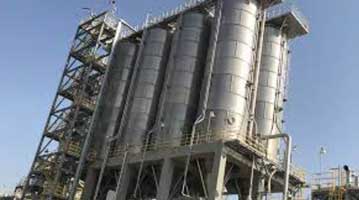Technology: Haldia opts for Lummus tech for India's first propylene plant; Oriental uses Grace’s Unipol PP tech for China plant

Indian chemical producer Haldia Petrochemicals Ltd (HPL) will be using technologies from US firm Lummus Technology for its new propylene (C3), cumene and phenol plants in West Bengal state. Haldia will license Lummus’s olefins conversion technology (OCT) and the Lummus/Versalis cumene and phenol technologies.
Once HPL's plant is complete, it will be India's largest cumene and phenol plant and the nation's first on-purpose propylene plant. The milestone will also help HPL become India's first integrated operator in the phenolics value chain and a leader in the niche specialty chemicals segment. The integration of OCT will strengthen India's petrochemical market by allowing production of more phenol products locally rather than by importing them.
"We are honoured to work with Haldia Petrochemicals, a long-time customer, on this critical investment for India's petrochemical industry," said Leon de Bruyn, President/CEO of Lummus Technology. "This is an opportunity to showcase Lummus' integrated technology solutions to help our customer become a leader in the phenolics and specialty chemicals value chain."
"With the commissioning of these plants, the overall chemical business portfolio is expected to increase by an additional Rs. 5,000 Crores. The company has ambitious targets to complete the project by Q1 2026," said Navanit Narayan, CEO of Haldia Petrochemicals. "As the plans move towards fruition, there will be advancement in areas such as digitization. This will generate direct and indirect employment in the downstream chemical industry. The total industrial scenario evolving around chemicals will witness tremendous growth within a very short period."
Lummus' scope includes the technology license for OCT and cumene and phenol technologies, basic design engineering, site services, advisory services and training.
OCT is the only commercially demonstrated route to propylene using metathesis chemistry, and it produces propylene from reacting ethylene with C4 and/or C5 olefins. In addition, Lummus and Versalis have partnered to license phenol and cumene technologies since 2007.
The phenol technology is said to be the lowest carbon footprint among available phenol technologies and provides a safe, reliable process that maximises product yields and produces high purity products. The cumene process is a liquid-phase alkylation technology using a proprietary zeolite catalyst and is characterised by a high cumene yield, ultra-high purity cumene product and a long catalyst run length.

Meanwhile in related news, polyolefins catalysts supplier W. R. Grace & Co (Grace) has announced that Oriental Energy Co. has started up a new plant with Grace’s Unipol PP process technology. Located in Maoming, China, the new 400 kilotonnes/year reactor line began producing homopolymers and random copolymers recently.
Oriental Energy now operates four sites utilising the Unipol PP technology offering 1.6 million tonnes of PP licensed capacity: 400 kilotonnes/year at Zhangjiagang (which started up in 2015); two 400 kilotonnes/year reactor lines in Ningbo (which started up in 2021); and the new plant in Maoming. Oriental Energy currently holds the largest total Unipol PP process technology capacity in operation in China.
Sandra Wisniewski, President of Specialty Catalysts at W. R. Grace, said, "The collaboration with Oriental Energy towards the successful start-up in Maoming marks another milestone in our partnership. Our advanced PP process technology delivers on our Plant Lifetime Performance commitment, as evidenced by the longstanding relationship between our two companies.”
Echoing the sentiment, Sun Canqian, General Manager at Oriental Energy (Maoming) Co, added, "We appreciate the joint effort the Oriental Energy and Grace teams provided to ensure a successful start-up, demonstrating a catalysis reaction that occurred within 10 minutes of injection. This new PP technology line aligns with our commitment to providing quality polypropylene products in China."
Oriental Energy says it selected Unipol PP process technology because of its reliable production capabilities, technology, proven catalyst performance, and technical service. The process technology enables the production of PP resins used for a variety of applications, such as automotive parts, packaging, consumer goods and infrastructure materials.
(PRA)
Subscribe to Get the Latest Updates from PRA Please click here
©2023 Plastics and Rubber Asia. All rights reserved.

©2023 Plastics and Rubber Asia. All rights reserved.
Home Terms & Conditions Privacy Policy Webmail Site Map About Us

















